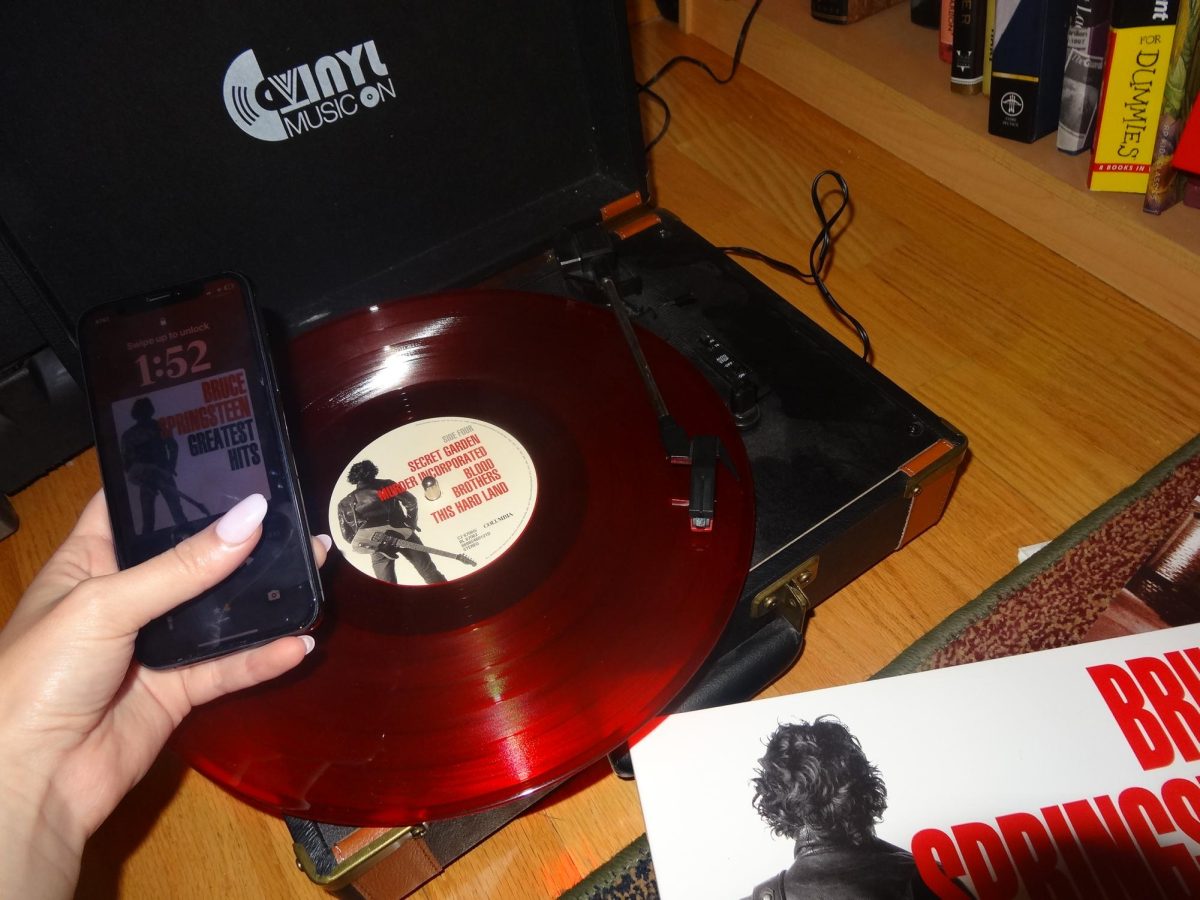A Comprehensive Review of Doctor Strange in the Multiverse of Madness (Pop at Palmetto)
May 20, 2022
NOTE: Spoilers for Doctor Strange in the Multiverse of Madness ahead!
After much anticipation, Doctor Strange in the Multiverse of Madness starring Benedict Cumberbatch and Elizabeth Olsen hit theaters on May 6 and earned $187.4 million domestically and $265 million internationally.
With endless talk of what’s next for the Marvel Cinematic Universe following the end credits scene featuring Wanda and Doctor Strange in the highly successful Spiderman: No Way Home, audiences had extremely high expectations for this movie. Combined with this, the return of director Sam Raimi to comic book movies and the expectation of multiple cameos from other MCU characters led Doctor Strange in the MOM to the 11th highest-grossing opening weekend of all time.
However, audiences and critics alike gave the film mixed reviews following its debut: Doctor Strange in the MOM sits at 74% on Rotten Tomatoes (not certified fresh) and has a CinemaScore of B+. In its second weekend, Doctor Strange in the MOM grossed only $16.7 million, a 67.5% drop from the over $180 million opening weekend.
The movie made very good use of serialized storytelling by picking up right where Wandavision and Spiderman: Now Way Home left off. This will likely be the future of Marvel because of all the new plotlines introduced in Phase 4. Yet by not explaining and summarizing the MCU up until that point, the movie alienated new viewers and made it difficult for casual fans to catch on to the fast-moving plot.
Before I dissect the movie’s faults, I’d like to give it some praise.
The movie built on a previous world and focused on a character-driven plot that pairs two perfect foils: Doctor Strange as the flawed hero and Wanda as the relatable villain. They challenge each other with their actions, both attempting to justify the reasoning for their sacrifices as doing what’s best for the greater good. The world has always seen Doctor Strange as a hero and it is only in this film that he finally conquers the darkest parts of himself and realizes that his decisions may be flawed. Those other versions of himself are still, well, himself, meaning that in another seemingly “utopian” universe he actually consented to all the terrible things the Illuminati was in pursuit of.
Doctor Strange attempts to get through to Wanda but she has already internalized the cruelty of the world based on how she was treated in the past. Despite seemingly having the same moral obligation as Doctor Strange, she takes her sacrifice to the next level by ultimately killing herself because she thinks the world sees her as a monster…or so she would like us to think. Wanda encapsulates this double standard in her powerful lines, “You break the rules and become the hero. I do it and I become the enemy. That doesn’t seem fair.”
Additionally, I appreciated how the acronym “MOM” in the movie’s title related back to Wanda’s motivation to search through the depths of the multiverse just to have a happy life with her kids that she lost after the dissolution of Westview in Wandavision. It was also great to see the integration of the first Latina LGBTQ+ superhero, American Chavez, into the film.
Now onto the movie’s flaws.
Doctor Strange never learns his lesson. He starts off the conflict with Wanda by seeking out her help and “forgiving” her for creating Westview. He goes on about how she did the right thing in the end. Once Wanda reveals that she isn’t going to help him fix the multiverse, Doctor Strange goes back to the Kamar-Taj and tells everyone about how Wanda enslaved the inhabitants of Westview with her mind, and they launch an attack against her. How hypocritical of him! Doctor Strange jokes with Wong and underestimates her power. In the post-credits scene, one of Strange’s variants literally causes an incursion and destroys a universe meanwhile Wanda just wants to be with her kids. And this isn’t to say that Wanda’s actions to get to her kids were right or wrong; rather, it is to point out that while Wanda sacrificed her life in the end, Clea summoned Doctor Strange for battle. These consequences are far from equal…Doctor Strange never even received the punishment that was promised from Spiderman: No Way Home.
Going back to the Illuminati, Wanda crushed their team of what was supposed to be the most powerful heroes in the universe. The Fantastic Four’s “smartest man alive” Reed Richards blatantly speaks Blackbolt’s power to kill with words, prompting Wanda to simply remove his lips. He then sneezes and dies… How climactic. Wanda rips Richard to shreds and subsequently cuts Captain Carter in half with her own shield after saying the cringey and forced “I can do this all day” line. Captain Marvel then dies when a statue falls on her, which makes no sense given her immense strength. Essentially, Wanda killed the Illuminati in a matter of five minutes.
Also, why does Wanda only use the power of dream walking to search for her kids when she could also find both Vision and Pietro? Wanda was trying to recreate the perfect family that she had in Westview, yet Vision and Pietro made not one appearance in the movie. Wanda came up with the idea to create Westview to reunite with her one true love, Vision. How could she not think to get him back?
Overall, the movie had highs and lows, but there were too many plot holes to make it an enjoyable watch for me. I would give this movie a 6/10.
Even with these critiques from myself and others online, the film could still earn a domestic range between $395-$405 million, making it the 10th highest-grossing MCU film in North America.










